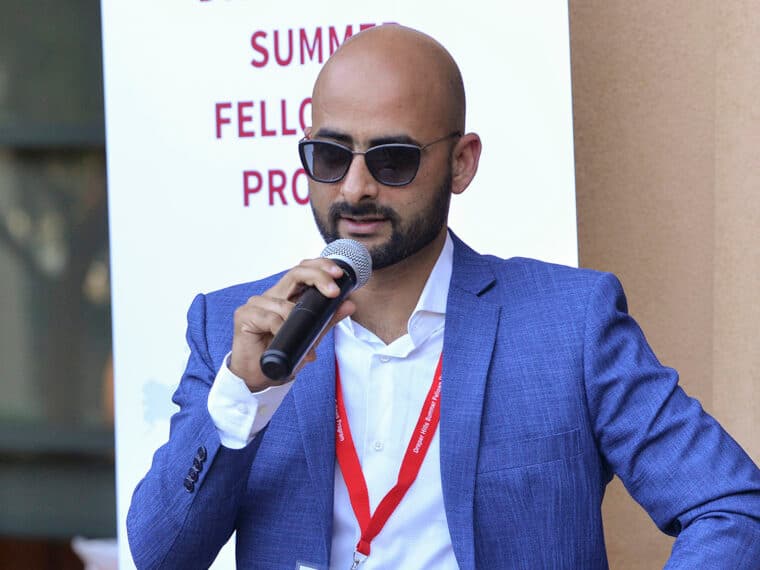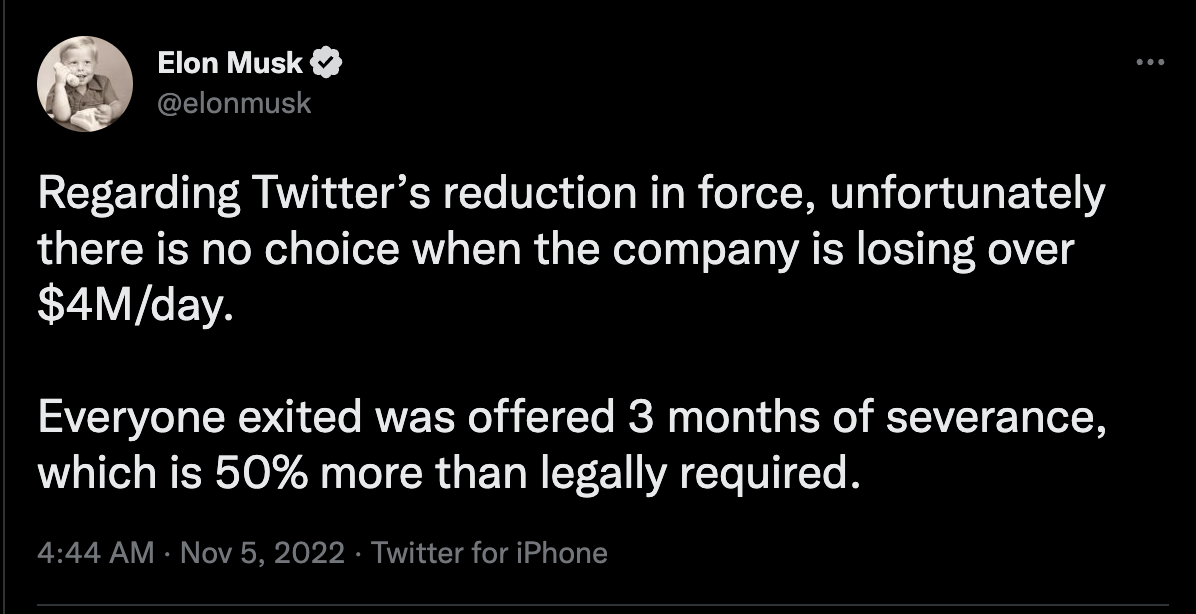
The former top Twitter executive told Inc42 in an interaction that Twitter’s sliding advertising revenues, and stock decline could have led to layoffs at the company
India, according to Khursheed, still contributes a minimal share to the revenue base of Twitter
Elon Musk would have to find a balance between Twitter’s free speech advocacy and the regulatory environment in India, adds Khursheed
High-voltage Drama unfolded at Twitter India’s offices as the social media platform announced mass layoffs. As minute-by-minute updates trickled down on the platform itself, the ensuing row saw many employees, including the firm’s India communications head, taking potshots at Elon Musk.
By evening, it became clear that many employees were affected by the melee. Reports estimated that the social media giant had sacked a ‘significant chunk’ of its workforce in the country as part of the larger global restructuring ordered by its new boss.
Speaking to Inc42, Raheel Khursheed, one of Twitter India’s first hires and its former country head, termed the situation pretty bad for its employees globally, adding that many must have seen it coming.
At Twitter, Khursheed led news partnerships and government or civic tech product development at Twitter INSEA. He also led Snap’s entry into the Indian market.
Twitter’s layoffs are no different from the firings happening in tech companies the world over, says Khursheed. He, however, adds that the ongoing market volatility has dramatically impacted the valuations of listed tech stocks, which explains the cost-cutting measures being adopted right now.
“However, Twitter is a public company and the entire saga played out on the microblogging site itself, right from Elon Musk offering to buy Twitter, walking away from the deal, a legal battle ensuing and finally, the acquisition of the company. This generated huge interest amongst the public,” the former Twitter India news head told Inc42 in an exclusive interaction.
Raheel Khursheed, who is also the cofounder of streaming platform-as-a-service (PAAS) startup Laminar Global, added that Twitter has been a fairly successful company despite the slump in its stock value over the last few quarters. He, however, cautioned that monetisation continues to remain a considerable challenge for the company, as 87% of the revenues came directly from just advertising.
“This explains why Musk made his first call to the Twitter advertisers after taking over the company, assuring them that the current content moderation policies would stay intact. Now we hear that employees in the content moderation, as well as brand safety teams, have been gutted,” the former Twitter executive said.
India Not A Huge Market For Twitter?
Top sources told the publication that Musk has laid off nearly half of the 300-member team that operates out of India, across marketing communications, engineering, sales, and product development verticals.
Several other reports suggest that Twitter’s marketing, communications and partnerships departments have, altogether, been scrapped. Meanwhile, reports also have trickled in of many employees losing access to their official emails and internal communications on Friday.
Despite the nearly 25 Mn users that Twitter has from India, including Indian Prime Minister Narendra Modi, who is amongst the top 10 tweeters globally, the country’s contribution to Twitter’s total revenue base remains unsubstantial.
While Twitter does not provide the exact breakdown of country-wise sales and revenue figures, Khursheed claims that India’s contribution to the platform’s revenue continues to be relatively smaller.
“India does not contribute a lot to Twitter’s bottom line revenue despite being an important user growth market,” he adds.
This could be a possible reason behind Musk’s decision to lay off almost the entire team in India, where monetisation continues to be a challenge, against the backdrop of challenging regulations, a stark contrast from Parag Agrawal’s tenure, when the social media firm was actively hiring in the country.

Khursheed believes that Musk, however, may be cautious when it comes to a market like India where the opportunity for his allied businesses like Tesla is huge. Hence, Musk may be forced to find a balance between Twitter’s position on free speech and, at the same time, not upset the Indian regulatory environment.




 Fintech
Fintech Travel Tech
Travel Tech Electric Vehicle
Electric Vehicle Health Tech
Health Tech Edtech
Edtech IT
IT Logistics
Logistics Retail
Retail Ecommerce
Ecommerce Startup Ecosystem
Startup Ecosystem Enterprise Tech
Enterprise Tech Clean Tech
Clean Tech Consumer Internet
Consumer Internet Agritech
Agritech




























